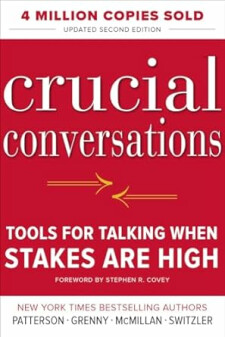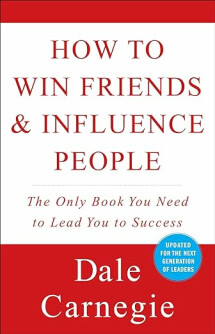Not only do healthy relationship skills grease the wheels of friendships and acquaintances, they are the necessary practice of people who want to grow in their faith: “Over all these virtues put on love, which binds them all together in perfect unity” (Colossians 3:14), the Apostle Paul writes to the Colossian church.
Over the next few weeks, we want to begin a series of articles that will strengthen our relationship skills, including healthy emotional attachment and healthy boundary setting. Our American culture is losing the ability to express ourselves, to listen to others, and to truly understand each other. Stephen Covey writes in his book, “Seek first to understand, then to be understood.”
1. Listen: To Their Heart
Every person you meet is a miracle. Let’s start there. So, learn to focus the spotlight of your attention on the person right in front of you. What makes them unique? What are they passionate about? Underneath all that is being said with their words or non-verbal cues, what is important to them? They share a story or facts for a reason. What are they celebrating? What are they complaining about? Listen to their motivation. Do they feel overlooked? Does life feel unfair to them? Or do they feel fulfilled? Or inspired? Or apathetic?
While they are talking, we shouldn’t be lining up our own stories or thinking about our favorite show we’d rather be watching right now. Listen!—beneath their words. Ask yourself, who is this miracle, and what is driving their life and decisions? The first step to any conversation isn’t to impress upon people that you are an interesting person or prove who is better or who is right. It is to show genuine interest in the other person and what they are communicating.
2. Show Interest in Others
In Dale Carnegie’s book, How to Win Friends and Influence People, he boils down chapter 4 by encouraging others to talk about themselves. He retells an entire evening when he sat next to a distinguished botanist. He inquired and entertained the botanist for hours of conversation that evening. At the conclusion of the night, after Mr. Carnegie had left, the botanist turned to the host and praised him as “most stimulating” and called him a “most interesting conversationalist.” In the words of Mr. Carnegie, “Why, I had said hardly anything at all…I didn’t know any more about botany than I knew about the anatomy of a penguin…I had listened.”[1]
If conversation is like playing a game, the goal is to play the game the other person wants to play and talk about the things they want to talk about. Most people like to talk about the things they like to talk about. Without being too invasive, we can ask questions that honor their interests.
Most people have hobbies, families, pets, passions, vocations, or experiences they enjoy sharing. It’s a good habit to keep a few helpful categories in mind. Effective questions are usually emotionally loaded questions. Instead of asking, “how long did you live in that house?” Ask, “What was your favorite memory in that house?” Notice how the question isn’t soliciting facts; it’s soliciting emotional memories and passionate life experiences. Listening and engaging with others is a dying art. You’ll be sure to make a lot of new friends if you learn this habit.
3. Seek Their Good
We get into trouble when we use people to our own advantage. It’s not always obvious when we do. In fact, it’s usually quite subtle. We can use people to feel good about ourselves or to comfort our own insecurities. Lust turns people into a toy for self-gratification. Greed uses other people’s talent or reputation to build our personal wealth, business, ambition, or empire. Bottom-line: selfishness always relates to people in ways that we get something out of it.
Goodness, on the other hand, seeks to leave others better than we found them. Being others-focused is about serving other people. We aren’t trying to use them to benefit ourselves; we are trying to add value to their lives. Release. Encourage. Protect. Honor. These actions seek the good and prosperity of others, even at the expense of ourselves.
4. Collaborate Instead of Control
Life is not a win-or-lose proposition. We can succeed alongside others. To read more on this from an article we published last year, read How to Win Every Argument Together. By creating an environment of collaboration and not competition, we can show grace towards each other’s soft spots, help each other improve, lean into each other’s talents, and help each other reach our mutual goals and motivations. Listening is not a sign of weakness; it’s a sign of strength. It does take compromise. That seems to be in short supply these days.
Reciprocity keeps the “willing to play with others” in relationships and succeeds over a longer timeline. We can learn to help others' proposals succeed. We can modify without criticizing. We can bring our talents to help them or the team win together. The law of reciprocity eventually returns the favor. Some people will abuse others and make all the demands. Eventually, people will stop wanting to work with them. But if we find creative ways to succeed together, We Succeed Together!
5. Seek Mutual Purpose, Offer Mutual Respect
In their book Crucial Conversations, the authors give the reader a grid to listen when the stakes are high. “Each of us enters conversations with our own opinions, feelings, theories, and experiences about the topic at hand.”[2] They continue, “The key is to create a safe environment where we are not “looking for ways to win, punish, or keep the peace.”[3] Anything that restricts the ability to communicate freely and openly with the group is debilitating: playing verbal games, masking, sarcasm, sugar coating, avoiding a person or situation, withdrawing, controlling, labeling, or attacking. These are all forms of silence or violence. We can, instead, create mutually safe engagements when we are looking for our mutual purpose and offering mutual respect.
Conclusion:
We can learn to honor others. Be interested in others. Seek their good. Collaborate instead of sabotage. And maintain mutually safe environments. If we learn to do these things, we will increase the quality of our relationships and conversations we have with others. Next week, we’ll look at why emotional connectedness is so valuable and how to seek that in our intimate relationships.
A Few Helpful Resources:




[1] Dale Carnegie. How To Win Friends and Influence People. (N.Y., Gallery Books, 1981,) 81.
[2] Kerry Patterson. Crucial Conversations. (N.Y., McGraw Hill, 2012), 24.
[3] Ibid, 38.
Tags: listen, relationships, goodness, serve, compromise, honor, encourage, together, conversation, abuse, protect, succeed, reciprocity, collaborate